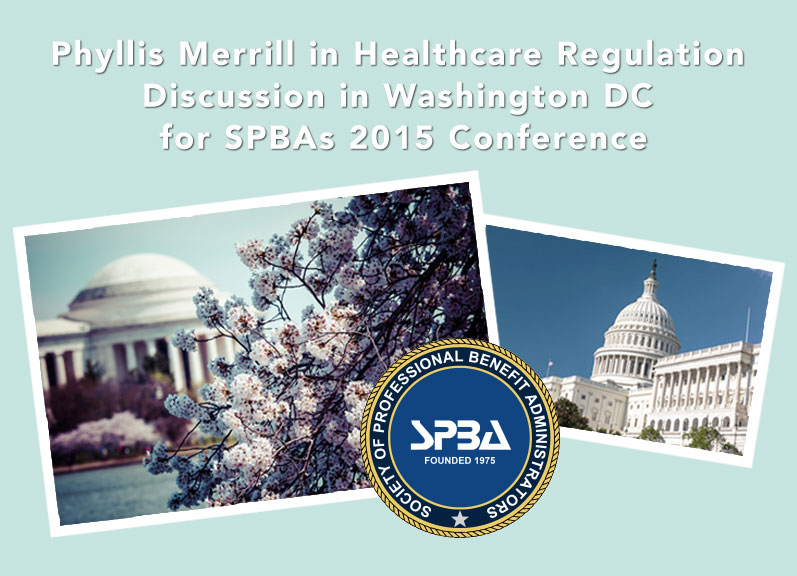
2015 SPBA Conference Recap
April 22, 2015
Phyllis Merrill, CEO of MBA Benefit Administrators attended SPBA’s annual conference, held this year on March 18-20 in Washington DC. Merrill participated in a group discussion, with other leaders in the industry. Those in attendance included DOL, IRS, the Department of Health and Human Services, EEOC, and others. While most of these topics are still in the proposal state, it is vital to the mission of MBA Benefit Administrators to be in the national discussion that creates and molds ongoing healthcare regulations.
Information and Discussion Included the Following Topics:
- Limits have been raised to $50 for 2015 for The Human Rights Act (HRA) and the Federal Housing Administration (FHA)
- Balance billing and maximum out of pocket expenses;
The question is posed whether balance billed amounts will be included, or not included, in maximum out of pocket spending, and how cost sharing and out of pocket maximums protects the health benefit plan. Regulators are still discussing current and future writings. Merrill believes that balance bills are not included in the maximum out of pocket spending. If there is a no network situation, like is offered with The Open Solution powered by MBA, there needs to be legal support to protect the individuals, the employer, and the insurance company against balance billing. I would leave out everything not highlighted - Compliance issues, including new tax reporting for the ACA
- New recommendations for Drafting self-funded plan documents
- Federal enforcement of the Affordable Care Act (ACA), and other health laws
- Americans with Disability Act (ADA) and voluntary wellness programs regulation changes
- Prospect of health reform changes of the ACA in the 114th Congress
- Health Savings Account (HSA) plan improvements, with the new healthcare rules; Allowing for certain stand alone HRA
- The Caregiver Advise, Record, Enable Act (CARE) may replace the Cadillac tax (a taxation on robust medical benefit plans) with a cap on exclusions. It would provide subsidies for people who work with small employers.
Posted in Events, Self Funded Insurance
